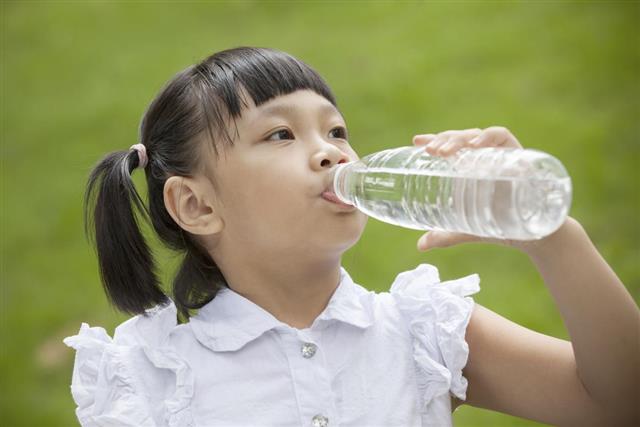
Dry cough in children, mostly roots from mild factors. It is in rare cases that, the condition might require emergency care. Here, we have outlined some of the common causes of dry cough in children, symptoms that usually accompany it, and a few treatment measures you may take, to manage the condition at home.
Coughing is the body’s natural way of getting rid of foreign substances from the throat and respiratory tract. Given that, an occasional cough is normal and means no harm. However, a cough that stays for several weeks, does signal something severe. A dry cough, also known as nonproductive cough, does not produce any phlegm unlike a wet cough or productive cough. In most children, a dry cough is usually minor and relatively easy to treat. In some cases, however, it may be otherwise.
Why is Your Child Having a Dry Cough?
Factors that might lead to dry cough in children include:
- Viral infections such as common cold and flu
- Breathing dry, heated air
- Postnasal drip
- Laryngitis
- Exposure to environmental allergens or irritants
- Asthma (indicated by a chronic dry cough)
- Whooping cough (indicated by a dry, hacking cough that lasts for months)
- GERD (gastroesophageal reflux disease)
- Pneumonia (mostly prevalent in school-aged children)
- Interstitial lung disease (less common in infants and children)
Symptoms that May Accompany
Note that, a cough is not a condition in itself, but an outcome of something else. Depending on what is causing it, your child may exhibit the following symptoms apart from the cough.
- Hives
- Chills
- Diarrhea
- Sneezing
- Vomiting
- Skin rash
- Sore throat
- Watery eyes
- Weight loss
- Hoarse voice
- Irritability
- Listlessness
- Stomach pain
- Crying spells
- Gagging cough
- Noisy breathing
- Rapid heartbeat
- Red, itchy eyes
- Labored breathing
- Increased drooling
- Runny or stuffy nose
- Difficulty swallowing
- Excessive perspiration
- Poor feeding/loss of appetite
- High fever or a low-grade fever
Dry Cough Remedy for Kids
Mostly, you can relieve your child’s cough with the help of some simple self-care treatment measures. However, if your child is an infant, then nothing would be more advisable than taking him/her to a pediatrician.
- Dehydration is a common complication of most illnesses, and so it is in the case of dry cough. Encourage your child to drink plenty of fluids including water, warm broths (chicken soup always works), and fruit juices (non-citrus). Drinking fluids not only reduces the risk of dehydration, but also helps reduce dryness and irritation in the throat.
- As inhaling dry air is one of the causes of dry cough in children, consider using a humidifier. A humidifier increases moisture in the air, and this helps reduce nasal congestion and throat irritation.
- Give your child a glass of warm water mixed with 1-2 teaspoons of honey. [Never give honey to children under 12 months of age. Honey may cause infant botulism – a rare but potentially fatal condition.]
- Make a paste of basil leaves and honey. Give this mixture to your child whenever he/she has a cough.
- Soak some almonds in water overnight, and the next morning make a paste out of them. Mix this paste with honey, and give it to your child whenever he/she has a cough.
- A paste of honey and ginger is equally beneficial in reducing dry cough. Simply grind some freshly-cut cloves of ginger and mix it with honey, and administer three times a day.
- Help your child do a salt water gargle. To make the solution, simply mix 1/2 teaspoon of table salt in a glass of lukewarm water, and stir.
Note:
- Salt water gargle is most suitable for kids aged 4 and above
- Teach your child the proper way to gargle. Even better, help him/her practice with plain water first.
- Remember to tell your child not to swallow the saline solution but to spit it out, after gargling with it.
- Gargling three to four times a day is recommended.
- If your child has a stuffy nose along with a dry cough, then help him/her sleep with the head slightly elevated. For this, you can use pillows or towels. This will help your child breathe more comfortably and sleep better.
A cough, whether dry or wet, can take a lot out of your child’s body. Although, you may not always prevent the condition from affecting your child, you can surely reduce the risks. One of the simple ways of doing it is by maintaining personal hygiene, and helping your kids learn to do the same.
Disclaimer: The information provided in this article is solely for educating the reader. It is not intended to be a substitute for the advice of a medical expert.





